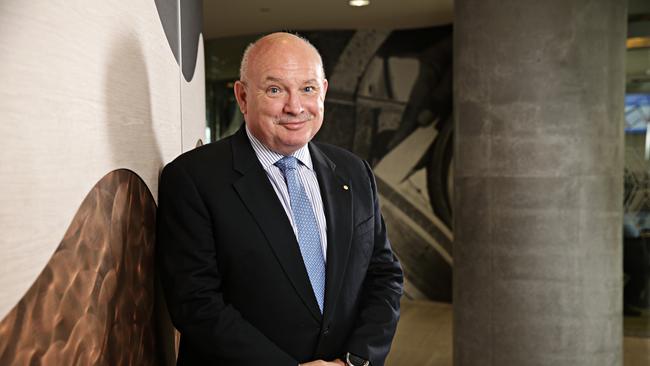UBS may have grown greedy for fees in PNG says ex-Oil Search boss Peter Botten
Former Oil Search boss Peter Botten says UBS may have grown greedy for the fees charged on a controversial deal in Papua New Guinea.

Former Oil Search boss Peter Botten has said UBS may have grown greedy for the fees charged on a controversial deal in Papua New Guinea, while also rejecting claims the energy producer overpaid for a major gas field, as a royal commission probes a $1.2bn loan that crippled the Pacific nation.
The loan from investment bank UBS was used by the PNG government to buy a 10 per cent stake in Oil Search in late 2014 under former Prime Minister Peter O’Neill.
“Unfortunately investment banks sometimes are particularly greedy and unfortunately in this case I think that might be an appropriate characterisation,” Mr Botten said.
The role of UBS juggling several roles — both as adviser to PNG and conducting a capital raising for Oil Search — was also investigated as part of the hearing on Tuesday.
Asked if he was content with UBS wearing several hats, Mr Botten replied: “Content might be a word I may not use. It was a reality that there was a desire by the state to pick up shares and through the placement UBS was their chosen adviser to carry out that. It was a reality of the day.”
Asked about the fee structures charged by investment banks, Mr Botten said term sheets from Oil Search could be provided.
“I actually don’t know what the fees were — and didn’t have visibility of the fees that UBS were charging on behalf of the state,” Mr Botten said, referring to PNG.
“I did know the fees we were being potentially charged should we have gone ahead with the standby facility.”
The UBS loan to the PNG government allowed Oil Search, which was developing natural gas assets in the PNG Highlands, to pay for a 23 per cent stake in the country’s biggest undeveloped gas field, Elk-Antelope.
But the deal turned sour when oil prices fell, slashing PNG’s stake by hundreds of millions of dollars and causing a political uproar, with Prime Minister James Marape promising to clamp down on corruption in the Pacific nation.
Mr Duma, now PNG’s Minister for Public Enterprise and State Investments, had earlier stated that Oil Search’s $US900m ($1.2bn) payment for its share of Elk Antelope was well over the odds compared with Total’s $US613m for a 61.3 per cent interest in the same field.
But Mr Botten, recently named chairman of AGL Energy, refuted the idea it had overpaid and said its acquisition was in line with Total’s payment to Elk Antelope owner InterOil once additional payments were taken into account.
“I don’t believe that those statements are accurate,” Mr Botten told the Commission. “The numbers that represent here in terms of actual figures paid for the interest in Minister Duma‘s statement do not necessarily reflect the actual numbers that were paid because of the nature of the transaction between Total and InterOil.”
Total paid $US400m cash upfront, a drilling-linked figure of $US60m, a resource payment of over $US500m when the project reached a final investment decision, a further $US500m payment and finally $US65m once first LNG cargoes are produced, according to Mr Botten.
“We had to pay approximately the same amount as Total. And in fact the shareholders of Pac LNG used the Total transaction as a benchmark to base our number which we paid upfront in cash,” Mr Botten said, referring to its deal.
A leaked Ombudsman’s Commission report into the loan suggested Mr O’Neill may have breached laws and engaged in improper conduct by failing to get approval by PNG’s parliament.
Mr Marape was also implicated in his former role as the country’s finance minister, but said in 2019 he did not breach the country’s leadership code and was acting on cabinet orders.

